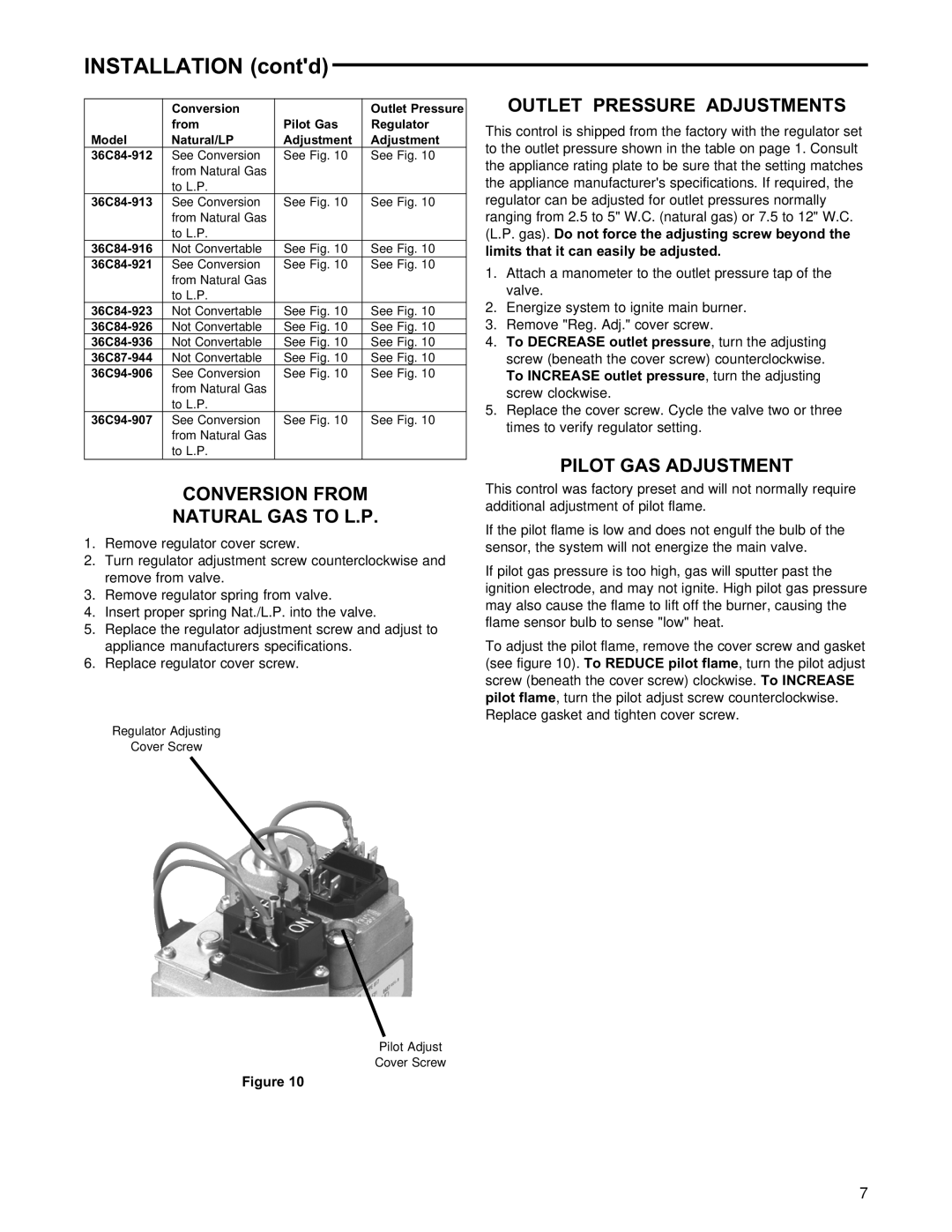36C specifications
The White Rodgers 36C is a versatile and reliable thermostat designed to enhance temperature control within residential and commercial environments. Part of the White Rodgers brand, known for its innovation in heating, ventilation, and air conditioning (HVAC) technologies, the 36C model stands out due to its user-friendly features and advanced functionalities.One of the primary features of the White Rodgers 36C thermostat is its digital display, which provides clear and concise readings of indoor temperatures. This LCD display is easy to read, allowing users to adjust settings without hassle, even in low-light conditions. The thermostat is equipped with a user-friendly interface that simplifies programming, enabling users to set schedules according to their specific heating and cooling needs.
The 36C model utilizes microprocessor technology, which enhances its accuracy and reliability in temperature regulation. This technology ensures that the thermostat maintains the desired temperature levels with minimal fluctuations, contributing to overall energy efficiency. By intelligently controlling HVAC systems, the 36C helps reduce energy consumption, leading to lower utility bills and a smaller carbon footprint.
Another key characteristic of the White Rodgers 36C is its compatibility with various heating and cooling systems, including gas, oil, and electric units. This adaptability allows homeowners and businesses to integrate the thermostat seamlessly into their existing HVAC setup. Additionally, the thermostat supports multi-stage heating and cooling applications, making it a suitable choice for those with more complex temperature control needs.
For enhanced comfort and convenience, the White Rodgers 36C comes with programmable features. Users can easily program specific time frames for heating and cooling, ensuring that the environment is comfortable upon arrival while maximizing energy savings during periods of inactivity. This programmable functionality is particularly beneficial for families and individuals with busy schedules.
Furthermore, the White Rodgers 36C promotes ease of installation and maintenance. Its compact design and straightforward setup process allow users to replace older models without the need for professional assistance. The thermostat's durability and long-lasting performance underline its reliability as an essential component of any HVAC system.
In summary, the White Rodgers 36C thermostat combines advanced technology, user-friendly features, and compatibility with various heating and cooling systems. Its digital interface and programmable capabilities provide enhanced control and convenience, making it a popular choice for maintaining optimal indoor climate conditions. With a focus on energy efficiency and comfort, the White Rodgers 36C stands out as a reliable solution for effective HVAC management.

